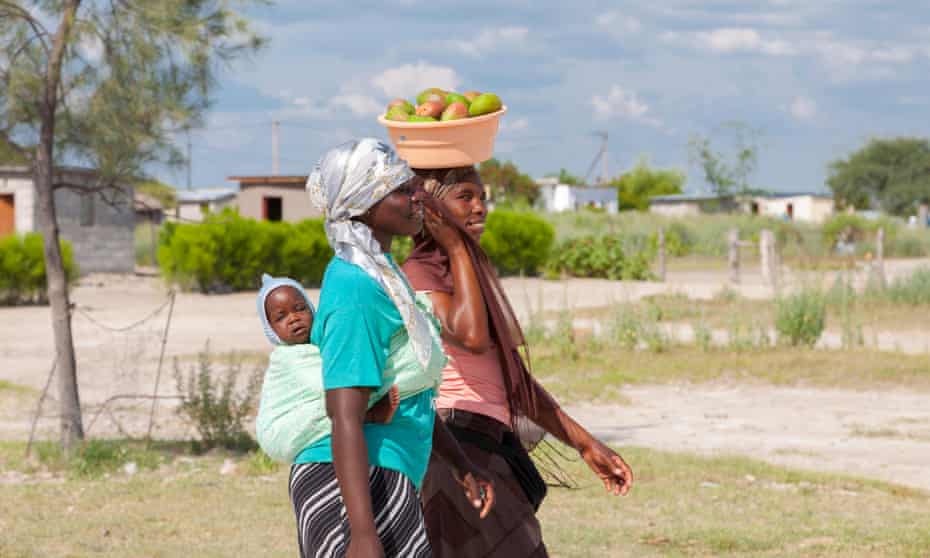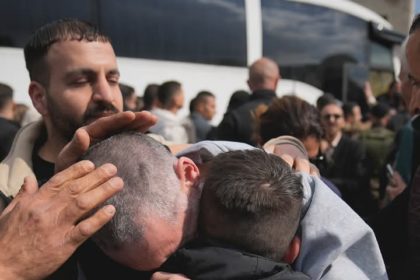By Adeyemi Adekunle
In a country renowned for its tranquil landscapes and a rich cultural heritage, an unspoken war is raging—a battle for the lives and dignity of women. Recent revelations paint a harrowing picture of a nation gripped by gender-based violence (GBV), shattering the festive spirit of December into a chilling season of mourning. Nearly 100 women were raped, and 10 lost their lives in just two weeks, a horrifying reality that demands urgent attention and reflection.
On Tuesday, Botswana Police Service Commissioner Dinah Marathe presented grim statistics that underscored the extent of the crisis. Between December 19 and January 2, authorities recorded 93 rapes and 25 murders—10 of which were directly related to GBV. In total, 61% of all reported crimes during this period were tied to gender-based violence, exposing a deep-seated issue within the social fabric.
“What comes out clear is that we are a nation with a culture of violence,” Marathe declared, her voice tinged with frustration and sorrow. Her statement resonated like a somber bell tolling for a society that finds itself at an inflection point.
The statistics may be shocking, but the stories behind them are even more tragic. These are not faceless numbers; they are real women, real lives—mothers, daughters, sisters, and friends. Among them is the story of a young woman whose aspirations ended abruptly when she was attacked and murdered by her intimate partner.
Friends recall her infectious laugh and unshakable dreams of becoming a doctor. Another tale is of a middle-aged mother of three who worked tirelessly as a street vendor, only to fall victim to a senseless act of violence that left her children orphaned and scarred.
Each of these lives represents a void—families torn apart, communities robbed of their leaders, and a nation bleeding quietly in silence.
In 2022, Botswana took significant legislative steps to curb gender-based violence. The government introduced specialized courts for GBV cases, a sex offender registry, and educational initiatives aimed at dismantling toxic attitudes. Yet, as the festive season’s gruesome toll reveals, these measures have not sufficed.
Minister of Youth and Gender Affairs Lesego Chombo voiced her concerns, calling for a societal transformation. “In the way we behave with each other, in our personal and professional spaces, we all take this as a priority to ensure that we inculcate a culture that is conducive for mental health and gender equality, so that we can curb this issue,” she said. But her appeal comes against a backdrop of mounting skepticism, as activists and victims question the commitment of authorities to drive real change.
Local nonprofit Feminists Alliance Botswana has been at the forefront of advocating for women’s safety, but its leaders argue that the government’s actions amount to too little, too late. Alliance spokesperson Thembiso Nhlekisana minced no words in her response to the reported atrocities.
“These figures represent a grim reminder of the pervasive violence that women and girls in our society continue to face,” Nhlekisana said. “This is not just a statistic; it is a reflection of lives lost, futures stolen, and communities broken.”
The alliance is calling for nothing less than a judicial overhaul—swift prosecution, harsher penalties, and prioritization of GBV cases. The frustration is palpable, fueled by a justice system that often feels sluggish and indifferent. Survivors report years-long delays in court proceedings, a debilitating process that only compounds their trauma. Perpetrators often receive lenient sentences, undermining the seriousness of these crimes and fostering a culture of impunity.
One survivor, who prefers to remain anonymous, shared her story of waiting nearly three years for her attacker to be prosecuted. “It’s exhausting. You relive your pain over and over, and in the end, it feels like justice is an illusion,” she said, her voice breaking.
Botswana’s crisis is not an isolated one. A 2023 report by the World Bank revealed that over 42% of women in East and Southern Africa experience physical or sexual violence in their lifetime. The prevalence of GBV in the region reflects entrenched patriarchal norms, systemic inequalities, and insufficient legal protections, leaving women at the mercy of a hostile environment.
In Botswana, the spike in violence during the festive season also reveals a troubling link between celebrations and increased aggression—a pattern observed worldwide, as alcohol consumption, financial pressures, and societal expectations converge. Yet, in this nation, the issue appears especially dire, with devastating consequences.
While legislative reforms are critical, GBV in Botswana requires more than laws and policies—it demands a cultural revolution. Activists are calling for a multidimensional approach that begins with education. Grassroots campaigns are working to challenge toxic gender norms from an early age, teaching boys about respect and empathy while empowering girls to stand up for their rights.
At the same time, support systems for survivors need immediate enhancement. Currently, shelters for abused women are limited, underfunded, and often located in urban centers, leaving rural victims without a lifeline. Health services, including trauma counseling, must be integrated into GBV interventions to help survivors rebuild their lives.
Nhlekisana’s call for systemic reforms encapsulates the sentiment of a growing number of Botswanans who refuse to accept GBV as inevitable. “We must ensure timely investigations, prosecutions, and convictions for perpetrators,” she said. But beyond punitive measures, there is a plea for humanity—a collective shift in how individuals and institutions view the value of women’s lives.
As Botswana grapples with this crisis, the question remains: What will it take for change to truly take root? Will these atrocities continue to haunt headlines, or will they galvanize a movement that transforms heartbreak into hope?
For now, the scars remain raw. Each woman violated and each life taken stands as a tragic reminder of how far the nation has to go. But the conversations ignited in the aftermath of this tragic festive season are the seeds of change. From grassroots activists to government officials, the collective effort required to dismantle Botswana’s culture of violence must leave no stone unturned.
Until then, the battle rages on, one survivor, one community, and one life at a time.




